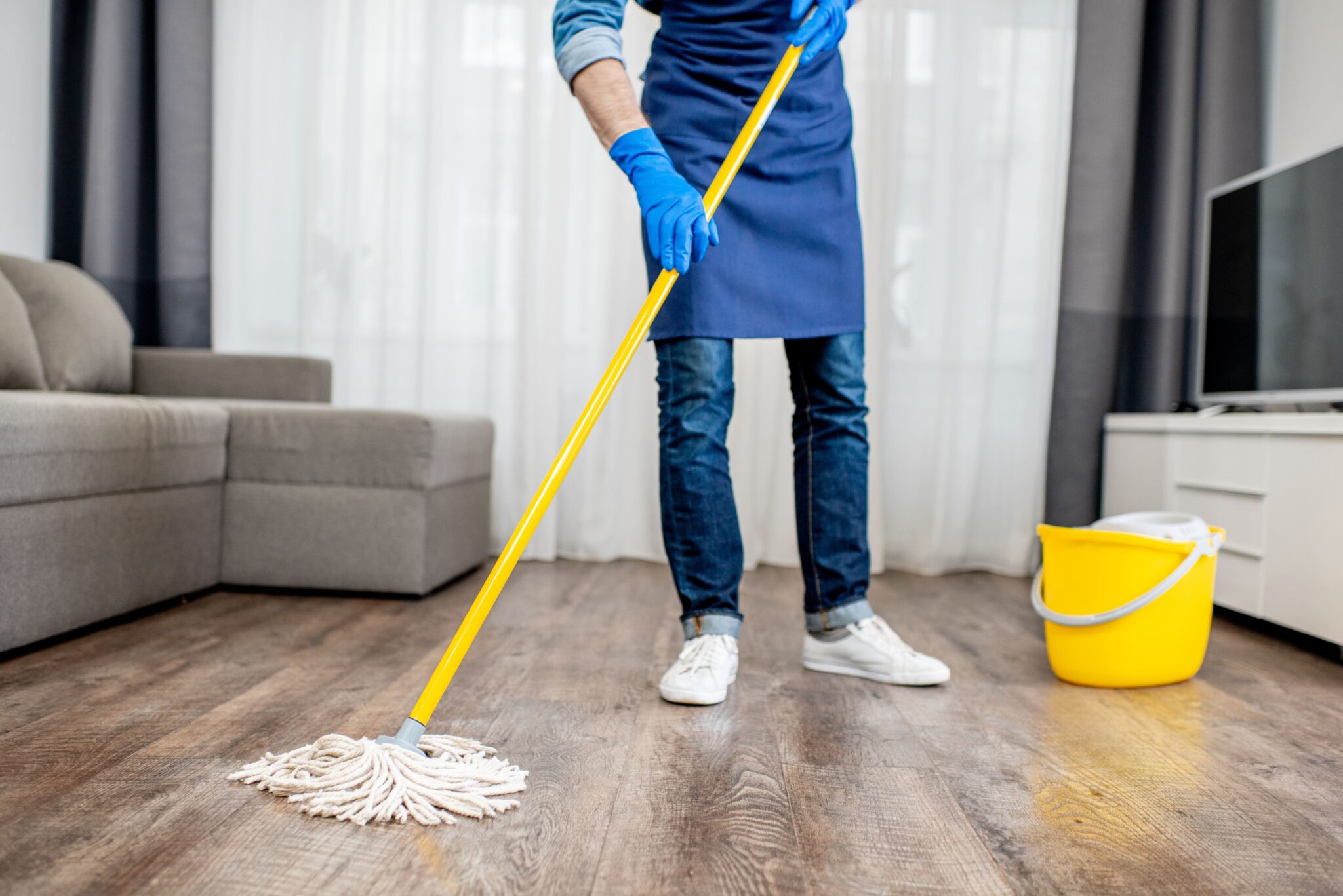How Regular Cleaning Can Improve Your Mental Health and Productivity
Welcome to a journey where cleanliness meets clarity, and tidiness intertwines with tranquility. If you’ve ever pondered the profound connection between a pristine living space and a peaceful mind, you’re in the right place.
This article, crafted especially for those seeking solace amidst the chaos, dives deep into the science behind how regular cleaning can be a powerful ally in boosting your mental health and productivity.
Whether you’re a homeowner striving for a serene sanctuary or a renter yearning for a clutter-free haven, the insights and tips within these paragraphs are tailored just for you to showcase the relationship between cleaning and mental health.
Join us as we unravel the secrets of decluttering, explore the negative impact of mess, and uncover the mental health benefits that a well-maintained home brings.
Squeaky Cleaning invites you to discover the art of finding calm through cleaning – because a tidier mind awaits beneath every freshly polished surface.
How Regular Cleaning Can Improve Your Mental Health and Productivity
The state of our home can significantly impact our mental health and overall productivity. Squeaky Cleaning understands the profound connection between cleaning and mental health, offering insights into how regular cleaning habits can positively influence your mind and give you a mental health boost.
Declutter Your Space, Declutter Your Mind
Clutter May Contribute to Depression
Numerous studies have linked mental health issues with a cluttered environment, with clutter acting as a potential contributor to depressive symptoms.
Any mental health professional would agree that the accumulation of dirty dishes on the kitchen counter, a cluttered dining room, and the constant visual stimuli in a cluttered space can overwhelm the brain, leading to increased stress, along with negative emotional and psychic states.

Clutter May Lead to Decreased Focus, Confusion, and Tension
The impact of clutter extends beyond the emotional realm, affecting cognitive functions. A disorganized space can lead to difficulty concentrating, heightened confusion, and increased tension.
For example, studies have shown that a person’s visual cortex can be overwhelmed by objects not related to a particular task, affecting the brain’s processing capacity and making it harder to focus and complete projects efficiently.
Negative Impact of Clutter and Mess
In addition to its effects on mental health, clutter and mess can create a negative ambiance in your living spaces.
The visual chaos can contribute to high stress levels and negative feelings, making it challenging to relax and unwind in your own home.
This negative impact on your psychological well-being emphasizes the importance of maintaining a clean and organized living space.
5 Mental Health Benefits of Cleaning and Decluttering
How Cleaning Can Benefit Physical Health
Engaging in cleaning activities is not just beneficial for your living space; it’s also a positive contributor to your physical health.
The physical act of cleaning involves physical movement, which promotes cardiovascular health, reduces the risk factors for cardiovascular disease, and promotes overall physical well-being.
Depending on how much cleaning you’re doing and how vigorous you’re getting, a regular cleaning routine can serve as a great constructive physical outlet and can lead to healthier sleeping habits.

Sense of Order and Control of Your Environment
There are numerous benefits of a clean and organized home, including a sense of order and control over your environment. Studies show that people are more likely to report good health when living in a clean and tidy house.
This sense of control can extend to other aspects of your life, contributing to reduced feelings of anxiety and stress.
Squeaky Cleaning encourages the use of professional organizing & decluttering services to establish an organized foundation that supports your mental wellness.

Improve Your Mood
The act of cleaning and maintaining a tidy space has a direct impact on your mood.
A clean environment tends to evoke positive emotions, promoting feelings of happiness and contentment.
This positive association between cleanliness and mood serves as a simple yet effective strategy for improved mental health.
Increase Your Focus
Not only does cleaning improve your mood, but living in a clutter-free environment allows your brain to focus more effectively.
Without the distractions of a messy space, you can concentrate better on your tasks, leading to increased productivity.
This enhanced focus can positively influence various aspects of your life, from work to personal projects.
Regulated Emotions
Regular cleaning contributes to regulated emotions by minimizing the impact of environmental stressors.
A tidy home becomes a sanctuary that has a calming effect on your emotions and promotes mental well-being. It can also help you navigate challenges with a clearer and more composed mindset.

How to Start Cleaning – Even When You Don’t Want To
Embarking on a cleaning journey, especially when motivation is lacking, can be challenging.
We recommend you take the cleaning process slow at first and figure out an approach that works for you, while progressing towards a cleaner home and improved mental health.
Squeaky Cleaning understands the struggle and offers practical tips to help you get started.
Make Your Bed
Begin your cleaning routine by making your bed. It’s a simple yet effective way to create an immediate sense of accomplishment, setting a positive tone for the rest of your cleaning endeavors. Once this becomes a habit, it becomes a part of your normal daily routine and not an additional stress.
Start Small
When motivation is low, start with small tasks as opposed to a full deep cleaning of your space. Tackling a single room or a specific cleaning task makes the process more manageable and less overwhelming.
Use A Timer to Get You Motivated
Set a timer, make a small cleaning to do list, and start a short cleaning burst. Instead of deep cleaning the entire house, knowing that you only need to focus on cleaning for a brief period can make the task seem less daunting and more achievable.
Use Smaller Furniture with Ample Storage
Opt for furniture that provides storage solutions.
This helps in maintaining a clutter-free environment by giving every item a designated space.
Declutter Your Workspace Before Quitting for The Day
Make it a habit to clean and declutter your workspace before finishing your day.
Returning to a clean and organized workspace the next day sets a positive tone for your work.

Listen to A Podcast or Music You Love While Cleaning
Make cleaning enjoyable by incorporating entertainment.
Listen to your favorite podcast or music while cleaning to turn the task into a more pleasant experience.
Squeaking Cleaning – Finding Calm Through Cleaning
Squeaky Cleaning is a professional organizing company that believes cleaning is more than just a chore; it’s an opportunity to find calmness, serenity, and better mental health. The act of cleaning can be a therapeutic and meditative experience, allowing you to connect with your living space on a deeper level.
Whether you choose to engage in the cleaning process yourself or enlist the help of Squeaky Cleaning’s organizing and cleaning experts, the goal remains the same: to create a harmonious environment that nurtures both your physical and mental well-being.
In conclusion, the science behind a tidier mind is multifaceted. It involves understanding the psychological impact of clutter, recognizing the mental health benefits of regular cleaning, and adopting practical strategies to initiate the cleaning process.
Squeaky Cleaning, a professional organizing company based in the US, is here to guide you on this journey, promoting not just cleanliness but a healthier and more productive lifestyle.

